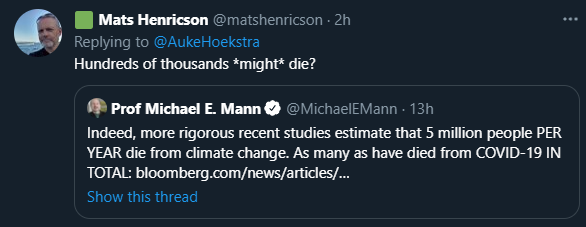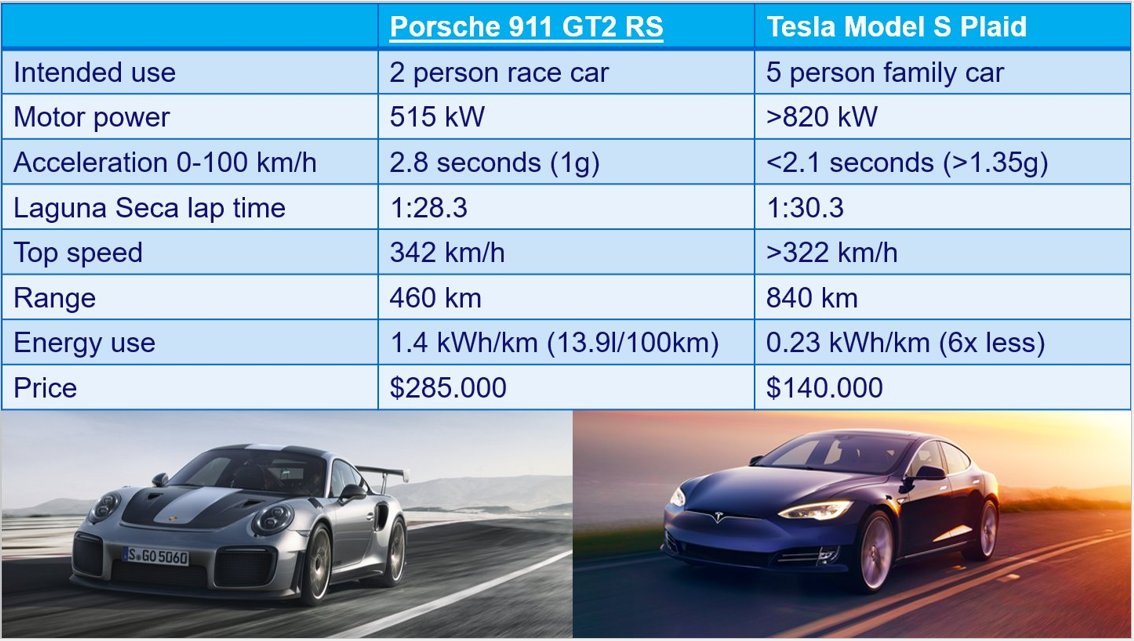
Unpopular take: I've had enough of these "climate change is the end of the world and everybody who doesn't agree and panic is a moron" Hollywood movies.
I think they show Hollywood hyperbole is part of the problem, not the solution.
grist.org/culture/dont-l…
I think they show Hollywood hyperbole is part of the problem, not the solution.
grist.org/culture/dont-l…
I seldom fly, eat mostly vegan and drive electric from my solar panels of my energy positive house.
I've actually read the IPCC reports and I devote my life to developing models that show us how to accelerating the change towards renewable energy.
So I take this stuff seriously!
I've actually read the IPCC reports and I devote my life to developing models that show us how to accelerating the change towards renewable energy.
So I take this stuff seriously!
Climate change is a disaster and if we do nothing about it hundreds of thousands will die and many millions will be driven from their homes, every year for many many years.
But climate change is not a comet hurtling towards earth to doom us all.
But climate change is not a comet hurtling towards earth to doom us all.
More people will continue to die due to smoking, bad eating and gross negligence to the poor that die from easily preventable causes. And we could prevent almost all deaths caused by climate change if we do mitigation right. We are already doing that.
https://twitter.com/AukeHoekstra/status/1463438957920800770?s=20
This need to make it a story with villains and and extinction that can only be avoided with seconds to spare by Marvel superheroes is not helping our ability to address climate change. It's a cancer that Hollywood script writers drive deeper into our system with every movie.
The real story is that sticking to outdated technologies and habits means we are leaving the world a worse place for next generations. We are destroying wealth and impoverishing the truly wonderful ecosystem on what might be the only place in the universe harboring life.
The real unsung heroes that I work with every day are the people that have nurtured and developed alternatives that now make low carbon energy cheaper than polluting fossil fuels. It's the people working on sustainable agriculture and cultured meat.
It the behavioral scientists that challenge the economists dogma that GDP is the mammon by showing that happiness doesn't lie in throwing more money around and that living sustainably and being happy are actually mutually reinforcing.
Hundreds of thousands of people all over the world are working their asses off to create sustainable solutions. Often unobserved because a shooting, a political row, a disaster, or a deadly comet is deemed more newsworthy.
We could easily make ourselves happier and wealthier and leave the world a better place, but somehow, in all the noise created by the media and Hollywood we choose not to. That for me is the real drama here.
So let's ignore Hollywood and make this world a better place for ourselves and others, simply because it's an intensely satisfying thing to do. We all know it. Now let's roll.
Another unhelpful panic example: claiming that 5M/y people die from climate change when this is the total due to extreme heat and cold.
Since 90% died of cold and the planet is getting hotter, climate change caused *less* of these people to die.

Since 90% died of cold and the planet is getting hotter, climate change caused *less* of these people to die.
https://twitter.com/AukeHoekstra/status/1471086847430479876?s=20

• • •
Missing some Tweet in this thread? You can try to
force a refresh










